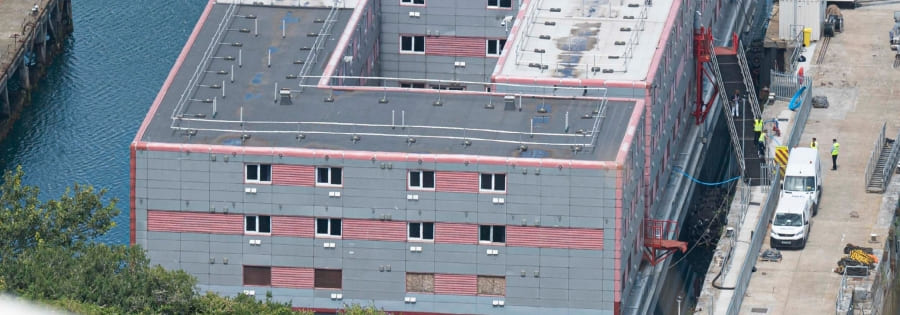New refugees need help to find secure housing
Anna Yassin, Migrant Services and Advocacy Manager at the Glass Door Homeless Charity, writes about refugee homelessness and how to tackle it.
Glass Door Homeless Charity has been providing support to individuals experiencing homelessness in London for 25 years, running the largest winter night shelter circuit in the UK and offering year-round casework provision. Our services are open to anyone, regardless of their immigration status.
Since winter 2023, we have seen an unprecedented increase in numbers of newly recognised refugees experiencing homelessness and seeking our support. During our winter night shelters between November 2023 and April 2024, referrals were 80 per cent higher than the previous year. Among the 393 shelter guests who engaged with caseworkers, the most common cause of homelessness was eviction from Home Office accommodation. This year, the trend continues. Although our winter night shelters close in April, the demand for spaces remains high.
While the broader housing and cost of living crisis in London affects all homeless individuals, refugees face unique challenges. Many struggle to navigate the complexities of the housing system, often exacerbated by the trauma of forced displacement, family separation, and the stress of unfamiliar bureaucratic processes. These difficulties can leave them particularly vulnerable to homelessness. While some refugees initially find refuge in shelter services, many continue to face the harsh reality of rough sleeping, sometimes long after they should have transitioned into stable housing.
The reduction in refugee integration services has left a big gap, which frontline homelessness charities like Glass Door have stepped in to fill. Over time, we have developed expertise in providing culturally aware, trauma-informed, and gender-sensitive advice and support for refugees. In light of this, we welcome the Home Office’s recent initiative offering integration support to newly recognised refugees through the asylum move-on liaison officer (AMLO) programme in London.
Currently operating in Barnet, Brent, Hounslow, and Hillingdon, the programme focuses on assisting refugees with their “move-on” process from asylum hotels. AMLOs, based within the hotels, assist refugees with Home Office documentation, applying for refuge integration loans, linking people in with local authorities for housing and homelessness advice, assisting with universal credit and advising on opening bank accounts.
The trial extension of the move-on period from 28 days to 56 days, running till June 2025, provides crucial extra time for more comprehensive interventions and support for individuals transitioning from asylum accommodation.
The future success of the AMLO programme hinges on greater collaboration between the Home Office, local authorities, and frontline homelessness services. By working together, we can help policymakers understand the gaps in the current system and find effective solutions to prevent refugees from being left destitute. The first meeting of the London Asylum Move-On Working Group laid out a commitment to effective partnership working, with a focus on sharing insights, good practice, and supporting the success of the initiative.
We are particularly eager to learn how the experiences of AMLOs reflect the challenges faced by frontline workers within overstretched and underfunded services. Understanding these shared difficulties will help shape policies and decision-making across the spectrum of services tackling homelessness and destitution.
As the housing crisis deepens, it is crucial that we continue to provide comprehensive, compassionate, and coordinated support to refugees and all individuals experiencing homelessness in London. At Glass Door, we remain committed to ensuring that no one is left without shelter, and we will continue to advocate for the policies and services needed to make this a reality.







